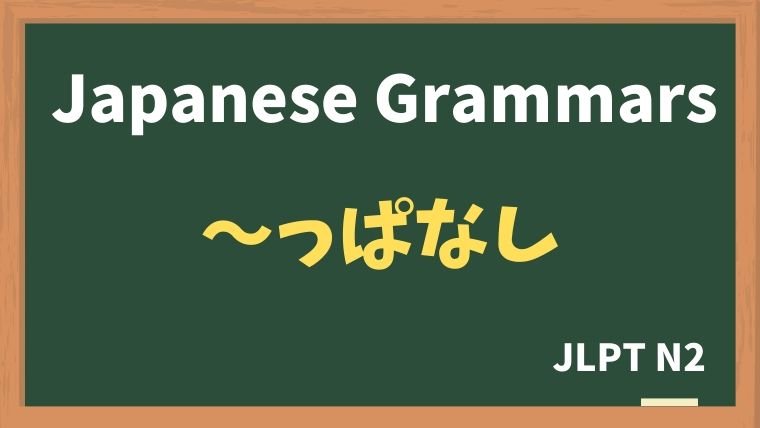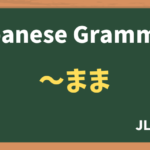
Explanation:〜っぱなし
fa-check-circleMeaning
"〜したままだ"
しなければいけないことがあるのに、しないでそのままのにしてしまうこと。あまり良くない意味で使われることが多い。
"leave on / leave out / leave as is"
① This means that someone doesn't do what he/she should do but leaves something as it is.
② the same state of affairs or the same situation continues for a long time.
fa-check-circleForm
V(masu形)ます + っぱなし
fa-check-circlePoints
- Continuous or Unfinished State: "〜っぱなし" indicates that something has been left in a certain condition or continues without change, often with a negative connotation.
- Carelessness or Neglect: The expression is frequently used to describe situations where someone has been careless, such as leaving something running, open, or incomplete.
- Negative Implication: While "〜っぱなし" can simply describe a continuous action, it often carries the nuance of negligence or inattentiveness, suggesting that the speaker finds the situation undesirable.
fa-check-circleJLPT Level
N2
Sample sentenes
昨日は、テレビをつけっぱなしで寝てしまった。
I fell asleep last night with the TV on.
マイケル!服が脱ぎっぱなしよ。ちゃんと洗濯機に入れなさい。
Michael! You left your clothes lying around. Put them in the washing machine properly.
息子はおもちゃを出したら、出しっぱなしで、片付けません。
My son leaves his toys out after playing and doesn't put them away.
電車が混んでいてい、大阪から京都まで30分立ちっぱなしだった。
The train was crowded, so I had to stand for 30 minutes from Osaka to Kyoto.
図書館の本を借りっぱなしで、返すのを忘れていた。
I borrowed a book from the library and forgot to return it.
Vocabulary
| Japanese |
English | |
| 脱ぐ | ぬぐ | to take off |
| 洗濯機 | せんたくき | washing machine |
Similar Sentence Patterns








